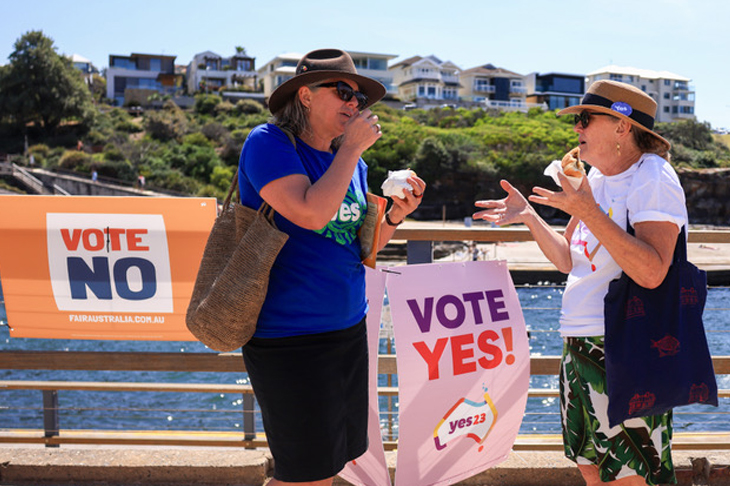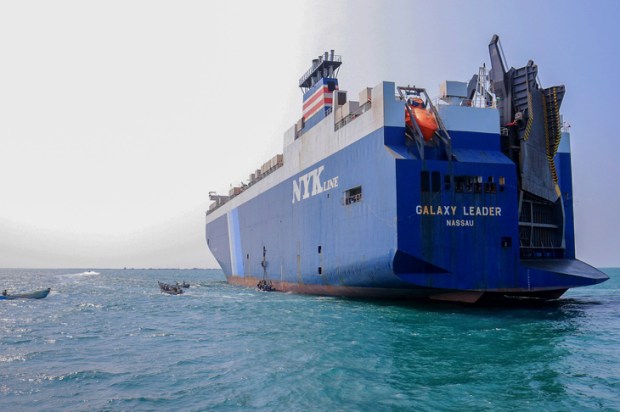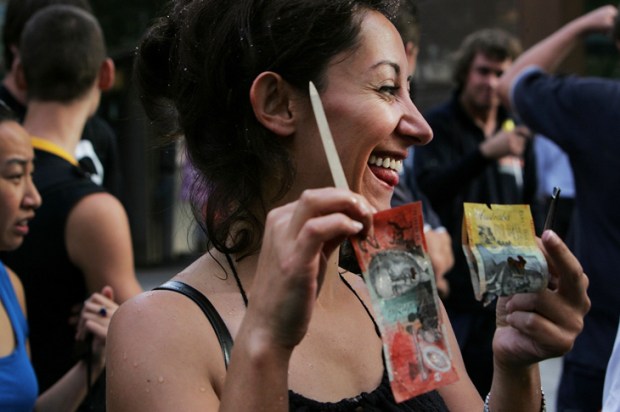The defeat of the Voice to parliament is a victory for the Australian way of life and a proud day in the history of our great nation.
Australians voted No because they fully understood what they were being required to vote on. The Voice was rejected because it would have permanently divided our nation by providing different rights to different Australians based on their race.
Australians understood that differential treatment is fundamentally incompatible with the values of tolerance, fairness, freedom and equality which have been pivotal to making Australia great.
The result of the referendum reaffirms our commitment as a nation to the ideals perhaps best expressed by former prime minister Bob Hawke, who said on Australia Day in our bicentennial year 1988 that, ‘In Australia, there is no hierarchy of descents. There must be no privilege of origin… the commitment to Australia is the one thing needful to be a true Australian.’
At this time, we have been blessed to have leaders such as Senator Jacinta Nampijinpa Price and Nyunggai Warren Mundine. They were always courageous and forthright. They represented and reflected what millions of mainstream Australians were thinking and made us proud. Simply put, this result would not have happened without Jacinta or Warren.
The defeat of the Voice is also a major victory in the culture wars. It is the first culture war battle the centre-right has fought in earnest in more than a generation, and it was won by a substantial margin. It has demonstrated that defending and promoting our values is popular with a significant majority of Australians. What it also showed is how out of step the political class in Canberra and the inner-city elites are with the thinking of mainstream Australians.
It is not a stretch to argue that a referendum or plebiscite on policies such as net zero, unplanned mass migration, or woke indoctrination through the National Curriculum would have attained similar results.
There are those who argue that Australians voted against the Voice because of a lack of details. This is a misreading of the results. As IPA Senior Fellow John Roskam recently wrote on his One and Free Substack, ‘It implies that Australians would somehow accept racial division embedded in the constitution if they were given the details as to how such a scheme would operate. No amount of details or bipartisan support can compensate for the fact that the Voice is wrong in principle.’
This assessment is supported by data. For instance, on the Wednesday before polling day, the Age reported that a third of those surveyed said they were going to vote No because, ‘the Voice will divide the country by race, giving one group extra rights’. This was by far and away the top reason for voting No. It was also more than double the number who said they were voting No because, ‘there is not enough detail about the Voice so we don’t know what we are voting for’.
To add to this, research published by the firm Resolve Strategic found, ‘the ongoing uplift in the No vote has coincided with growing awareness and understanding of the referendum vote. The inescapable conclusion is that the more Australians have seen and heard of this debate, and the more they have been engaged, the more they have been turned off by the proposition’.
It is important also to understand that defeat of the Voice is a stunning rebuke of Australia’s governing class of corporate, media, political and institutional elites. Never before in Australia’s history has economic, corporate, financial and communications power been coordinated and deployed against mainstream Australians in such a manner.
At least in the early days of the referendum campaign, almost every single major corporate, media organisation, civic institution (such as places of worship) and sporting code shamelessly supported and financed the divisive race-based Voice to parliament.
The referendum result was also secured in the face of one of the most unequal and unfair campaigns in Australia’s history.
The elites did everything in their power to stop a free and fair debate. The government gave a multimillion-dollar free kick to Voice supporters by providing the Yes campaign with tax deductibility status long before the No campaign. The corporates spent over $20 million on the Yes campaign. Qantas gave free flights to Yes campaigners.
Shamelessly, the government even tried to stop the distribution of the referendum pamphlet outlining both the Yes and No cases, a tradition dating back to 1912. And let’s not forget the multi-billion dollar, foreign-owned big tech behemoths and self-appointed fact-checkers who, with the backing of government, engaged in unprecedented levels of censorship.
And this is without getting into the shenanigans of the Australian Electoral Commission.
The fact that an overwhelming majority of Australians, in every state and the Northern Territory, saw through all of this should give us all hope for the future.
A key lesson of this referendum is that millions of Australians passionately believe more work needs to be done to achieve better outcomes for remote indigenous communities. These communities have for too long been let down by bureaucratic structures designed to serve the needs of the political class and activists, rather than to alleviate poverty, violence and deprivation.
But the co-opting of the desperate situation too many of our fellow Australians face, by the political class and elites, to justify efforts to permanently divide Australians by race has comprehensively failed.
Lastly, we should all remember that millions of our fellow countrymen and women voted Yes. No doubt, the great majority of those who voted this way did so because they genuinely believed the Voice would alleviate the tragic outcomes that far too many indigenous Australians in remote parts of the country face.
It is the obligation and responsibility of our political and community leaders to engage in a unifying process for our nation. There is far more that unites us as Australians than divides us. The fault is not with those who voted Yes, but with the elites in Canberra and our capital cities, and activists who put our nation through this divisive, unnecessary, and avoidable process.
Got something to add? Join the discussion and comment below.
Get 10 issues for just $10
Subscribe to The Spectator Australia today for the next 10 magazine issues, plus full online access, for just $10.
Daniel Wild is Deputy Executive Director of the Institute of Public Affairs
You might disagree with half of it, but you’ll enjoy reading all of it. Try your first month for free, then just $2 a week for the remainder of your first year.














Comments
Don't miss out
Join the conversation with other Spectator Australia readers. Subscribe to leave a comment.
SUBSCRIBEAlready a subscriber? Log in